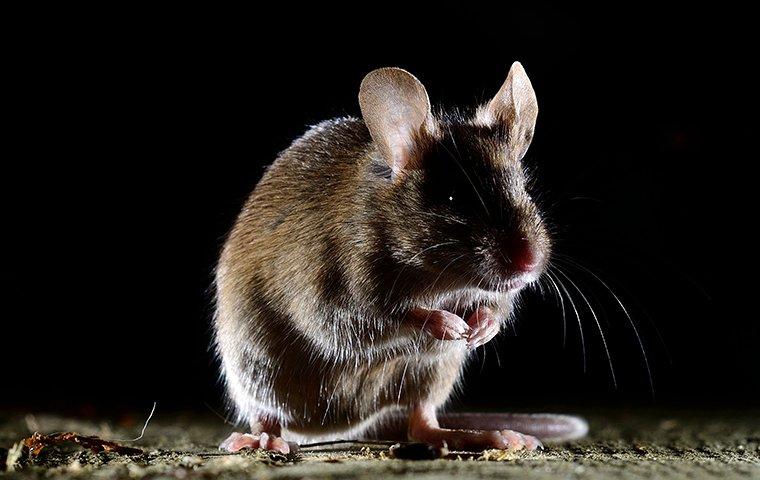
The Trick To Getting Rid Of Mice In Your Mooresville Home
Mice aren't a problem, right? All you have to do is put a trap down and catch the mouse in your house. You likely know it is not nearly as easy as this if you've ever had a mouse infestation. But it is possible that you don't know this. What do we mean? You may have laid a trap down, caught a few mice, and didn't hear any more sounds inside your walls. When this happens, there is a good chance that mice are still in your home; you just don't know it. So, what is the trick to getting rid of mice and knowing for sure that they're all gone? This is our subject today. Join us as we discuss signs of a mouse infestation, why it is good to know how to detect mice in your home, why traps often fall short, and what works best for mouse pest control in Mooresville. Will you be a mouse expert when you're done reading this? No. But you'll definitely have a better understanding of how mice operate, and this will help you protect yourself and your family from sickness. With that said, let's get into it

Clear Signs You Have A Mouse Infestation In Your Home
We often get calls when Mooresville residents hear mice noises coming from inside their walls. It is annoying when you hear mice climbing up and down in your wall voids. But you might want to thank those mice. What? Why on earth would you want to do that? Because most of the time, mice don't make noises that you can hear. So, you need to look for other signs to uncover a mouse problem in your home or to figure out if all the mice are gone after you've taken steps to control them. An effective and detailed inspection is the first, middle, and last step in an effective mouse treatment. Here's what to look for and where to look.
Attic: Look for signs of mice in attic spaces. There are many ways to detect mice up there without actually seeing a mouse.
- Mice leave their droppings scattered about in areas they explore. We'll mention this sign several times because it is the best way to detect mouse activity. When you find droppings, clean them up so that you can return later and see if mice are still active in that area. Wear gloves and a face mask when doing this.
- Mice create nests in nooks and recesses. Look high and low for these nests. Mouse nests are composed of paper, pillow fluff, fabric, insulation, plant matter, and other materials mice collect inside and outside of your home.
- Mice damage store furniture. You may find holes and discover a nest, mouse droppings, or mice inside cushions and voids within furniture items.
- Mice chew holes into stored furniture. Look for the holes, and evidence that a mouse got inside, such as grease marks around the opening.
- Mice chew on wiring. Look for damage to any exposed wires in your attic.
- Mice leave urine everywhere they roam. You may smell urine in your attic if you have an infestation, particularly if it is a large infestation.
- Mice leave their little footprints in dust. If you have dusty floors or surfaces in your attic, you may see these prints.
Pantry: Mice love pantries because mice eat 15 to 20 times a day. If a mouse is accessing your pantry, it is likely to have a home in your wall.
- Look for holes in your walls and baseboards. A mouse only needs a hole around the size of a ten-cent piece. You may have to move things around to find these holes.
- Look for mouse droppings behind food packages on your shelves, or on the floor. When you find them, consider the composition. Old droppings will break apart when you squish them. New droppings are moist and squishy. Don't touch them with your hand unless you have a rubber glove on.
- Look for holes in food packages. Mice will target seeds, grains, nuts, and cereal mostly.
Kitchen: Mice love kitchens for the food debris and available water sources. Some of the places they can get into may surprise you.
- Check the cabinet under your sink for droppings, hairs, or a scent of urine. Mice often get into this space by way of a gap around the pipe.
- Check to see if the mouse had to chew on the gap to make it larger.
- Check the backs of your kitchen drawers. Mice often leave droppings in drawers and mystify homeowners. They are able to do this because they access the drawers from behind your cabinet where there is likely to be an opening. It may not be closed like the front.
- Check around appliances. Mice feed on food debris and grease stuck to the sides of your oven and they will lick dried juice or milk under your refrigerator. Clean these during your inspection to reduce attractants.
There are other places in your home where mice can hide. In all areas, look for the warning signs listed above. If you don't see any evidence but think you definitely have mice, consider borrowing or renting an infrared camera. Just be aware that you might not like what you see. You might find a lot more mice than you're expecting.
You Don't Have To Touch Mice For Them To Make You Sick
We discussed wearing protective gear when cleaning or handling mouse droppings. Keep in mind that you can get sick from mice without touching the mice or their droppings. Resting your hand on a surface could expose you to harmful, invisible disease-causing organisms. As you look for warning signs, it is always best to wear gloves and a mask, just in case. If you collect droppings, make sure to dispose of them in outdoor receptacles.
Why Mouse Traps Aren't Enough To Get Rid Of An Infestation
Okay. Once you've found evidence of mice in your home, you're likely to set your mind on catching them. We get it. But catching mice isn't as easy as you might think. While you are now equipped to inspect your home and tell when your mouse control has failed, it is helpful to understand some of the ways traps fail.
- Mice don't prefer cheese. If you've watched many cartoons with mice going to town on pieces of cheese, you should know that cheese is not the best bait for mice. What do mice eat? They're tiny rodents that prefer less substantial food sources than cheese, such as seeds, nuts, and rice. Peanut butter is a good option for trapping mice.
- Mice have a powerful sense of smell. When a mouse approaches a trap that you have handled with your bare hands, it will smell you on the trap and avoid it. Plastic click traps work better than wooden spring traps because plastic doesn't hold your scent as long. You may also use rubber gloves to prevent your traps from smelling like you.
- Mice have poor eyesight and often run along walls. Placing traps in open areas will not work well for catching mice. You must place traps next to your walls to have the greatest chance of success.
Do you see the problem? Improper baiting and trapping are often the reasons why mouse traps fail. But there is more to it than this. Even when placed and baited correctly, traps aren't enough on their own. For example, you can trap and remove mice all day, every day, and still have a mouse problem because new mice can get into your home and replace the mice you're removing if you don't seal entry points. Exclusion work is an essential step.
Professionals use several products and methods to locate, remove, and exclude mice. Traps are only one piece of the control puzzle. If you're dealing with a mouse problem in Mooresville, contact Lake Norman Home Services for professional rodent control.
How To Get Rid Of Mice In Your Home For Good!
Once the mice in your home are gone, what is the next step? You could wait until you have another mouse problem, but it is far better to proactively stop mice before they get into your home. There are several ways you can keep mice out, but it takes a lot of work. You need to stay on top of trash management, yard work, moisture control, exclusion work, removal of lawn clutter, and other exterior pest management. Keep in mind that our technicians don't just stop mouse infestations, they can help you keep mice out of your home all year long. Our ongoing pest control services provide coverage for a long list of pests, including mice and rats. Routine service visits from your Lake Norman Home Services technician will provide the exterior of your home with layers of pest protection and targeted rodent control methods where needed. If you'd like to learn more about how we help with year-round pest control in Mooresville, connect with us today. We're always here to help.


Customer Reviews
-
“Lake Norman pest control does a wonderful job all around and even explained the safety concerns I had of the products for my new baby and dog.”- Lauren G.
-
“Lake Norman Pest Control has always been consistent with their service quality and more than fair with pricing.”- Michael C.
-
“He called me after the appointment and gave me a summary of the service and he made some additional recommendations.”- Leslie Z.
-
Jake promptly arrived and asked what issues we were having and quickly began applying treatment. He was professional and thorough. Very pleased with the service today.- Lisa C.
-
“Jake promptly arrived and asked what issues we were having and quickly began applying treatment.”- Lisa C.
-
“Lake Norman always does a great job in communicating and shows up at their committed times.”- Mike C.
-
“Michael has beHe and every representative we’ve worked with from this company have been very kind and good at listening to our needs. en super helpful! He's prompt, thorough, and responsive to all of our questions.”- Kimberly G.
-
“Our technician, Jake, has been very helpful. He has been on time and responsive to all my questions.”- Laurence P.


Why Choose Lake Norman Home Services?
-
Give A CrapDelight others by owning your role and saying yes. Take pride in how you appear & act & every other detail of the job. Be on time, attentive, & enthusiastic. Act as if the buck stops with you on every aspect of the job.
-
Chase PerfectionChase Perfection, knowing full well we will not reach it, but along the way we will catch excellence. Have a sense of urgency; Go-Forth Time - right now might be the only time you have to get it right.
-
Dig Deeper
Be an action-oriented professional that makes decisions based on evidence rather than stories & assumptions. Stay curious. Data can speak for itself.
Understand the cause of the fire rather than rushing to extinguish it.
-
Fight For SimplicityKeep it simple & consistent. Focus on how things should be done every time.
-
Face It, Fix ItConfront challenges directly and address issues head-on. A bias for action and powerful conversations drive our progress. It’s about getting it right rather than being right.
-
Grow!Growth is our purpose. Growing as people & growing our business.